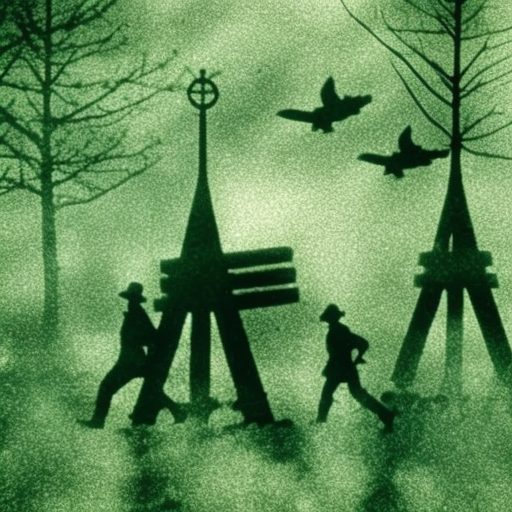The Great Eastern Crisis
The Great Eastern Crisis, also known as the Eastern Question, refers to a series of events in the late 19th century that centered around the decline of the Ottoman Empire and the struggle for control over the Balkans. This period of instability and conflict had significant implications for the balance of power in Europe and ultimately led to the outbreak of the First World War.
Background
The Ottoman Empire, once a powerful and expansive empire, had been in decline for several centuries. By the late 19th century, it had lost much of its territory and was facing internal unrest and economic difficulties. This decline created a power vacuum in the Balkans, which various European powers sought to exploit.
Rise of Nationalism
One of the key factors contributing to the Great Eastern Crisis was the rise of nationalism in the Balkans. The region was home to a diverse mix of ethnic and religious groups, including Serbs, Bulgarians, Greeks, and Albanians, all of whom sought to establish their own independent states. This led to a series of uprisings and conflicts, as these groups fought for self-determination.
Russo-Turkish War
The Russo-Turkish War of 1877-1878 was a major turning point in the Great Eastern Crisis. Russia, seeking to expand its influence in the region, declared war on the Ottoman Empire. The war ended in a decisive Russian victory, and the Treaty of San Stefano was signed, which granted significant territorial concessions to Bulgaria and other Balkan states.
Berlin Congress
The Treaty of San Stefano alarmed other European powers, particularly Austria-Hungary and Britain, who feared that Russian dominance in the Balkans would upset the balance of power. In response, a congress was held in Berlin in 1878 to renegotiate the terms of the treaty. The resulting Treaty of Berlin revised the territorial arrangements and created a more complex system of alliances and protectorates in the region.
Young Turk Revolution
In 1908, a group of reformist officers known as the Young Turks staged a revolution in the Ottoman Empire, demanding constitutional reforms and an end to autocratic rule. This event marked a significant shift in the balance of power within the empire and raised hopes for a more stable and inclusive government.
Balkan Wars
The Balkan Wars of 1912-1913 were a direct consequence of the Great Eastern Crisis. The newly independent Balkan states, including Serbia, Bulgaria, Greece, and Montenegro, sought to further expand their territories at the expense of the Ottoman Empire. These wars resulted in significant territorial gains for the Balkan states but also deepened ethnic and religious tensions in the region.
Assassination of Archduke Franz Ferdinand
The Great Eastern Crisis ultimately culminated in the assassination of Archduke Franz Ferdinand of Austria-Hungary in June 1914. This event triggered a chain reaction of alliances and declarations of war, leading to the outbreak of the First World War just a month later.
Conclusion
The Great Eastern Crisis was a period of intense instability and conflict in the Balkans, driven by the decline of the Ottoman Empire and the rise of nationalism. The events of this crisis had far-reaching consequences, reshaping the political map of Europe and setting the stage for the outbreak of the First World War.












